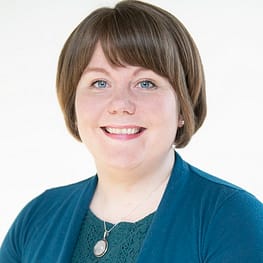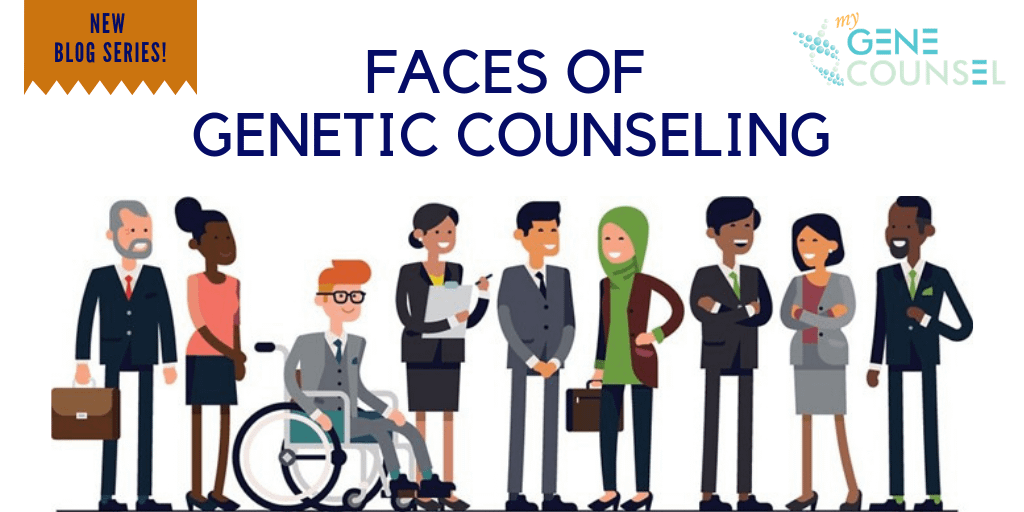
In the blog series, “Faces of Genetic Counseling,” we highlight genetic counselors who come from diverse backgrounds and serve as representatives and advocates within their field.
In our latest interview, we had the opportunity to speak with Hallie Andrew, MS, a genetic counselor at Children’s National, who shared with us her unconventional route to becoming a genetic counselor.
Tell me a bit about your non-traditional journey to becoming a genetic counselor.
I completed my undergraduate degree in English and creative writing in 2008 and worked in several different settings, ranging from proofreading to veterinary medicine. My dad is a neurologist and kept steering me toward genetic counseling, but I ignored his advice for about five years before I finally started looking into it. Because I did not have an undergraduate degree in the sciences, I had to go back to school and get a lot of prerequisites. I started grad school in 2015 and graduated with a master’s degree in medical genetics from the University of Cincinnati/Cincinnati Children’s Hospital Medical Center in 2017.

What is your role in genetic counseling now?
I am a pediatric genetic counselor at Children’s National in Washington, DC, where I see families in the Rare Disease Institute and Leukodystrophy and Myelin Disorders Program. I’ve also established a specialty clinic in our department one day a month for patients with autism.

What would you say to other students without a background in science who are considering a career in genetic counseling?
For people who don’t have a background in science, you may be able to leverage your innate interpersonal skills to become a great, effective genetic counselor. The humanity side of genetic counseling is difficult to teach – things like active empathy, listening, and psychosocial counseling. Those are some skills I was told that I have, and they’re just as important in this career. Once I got the hang of it in grad school and was able to compensate for the courses, the skills I have helped me to learn on my own. You don’t necessarily need a background in biology to move forward as a genetic counselor.

What change would you like to see in the world of genetic counseling?
I would like us to be better recognized and established as a profession overall. We have great respect in my own hospital, but as a field in the larger conversation of healthcare and reimbursement, greater understanding of what genetic counselors are trained to do would help us a great deal. We also need more diversity in the people going into the field of genetic counseling.

What message do you have for the non-typical student who wants to become a genetic counselor?
To quote Michael Scott from The Office, “Never ever, ever, ever give up.” If it’s really the career and the profession that you want, don’t give up. The challenges make you a stronger, better person. I had plenty of setbacks, and I got past them. A setback in the immediate time is not permanent.

